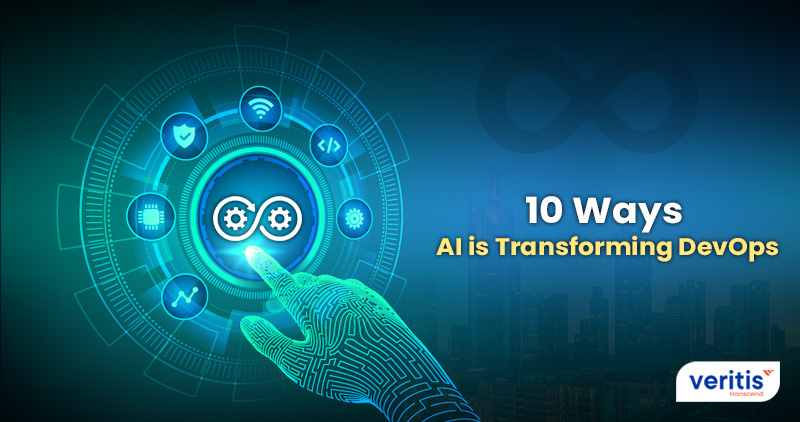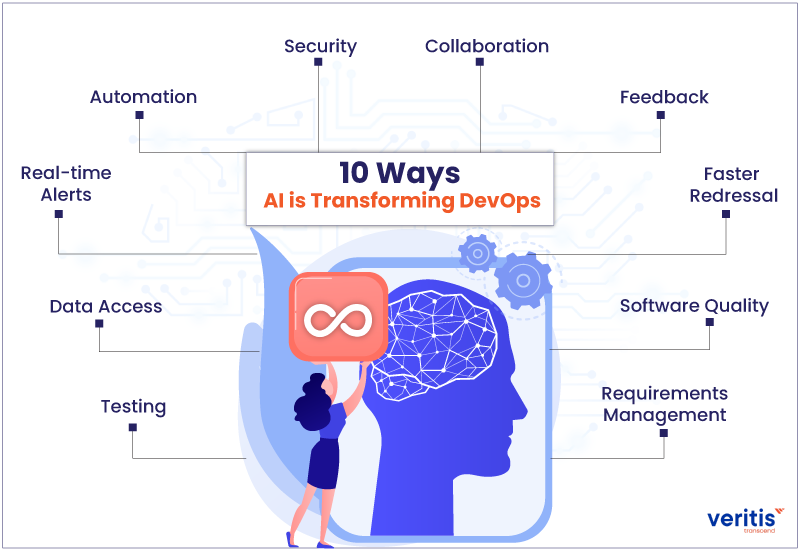
The need for speed in the IT world is increasing by the day. The reality is that the software development that took months earlier is being executed in weeks by collaborating distributed teams using DevOps methodologies.
Since the term ‘DevOps’ entered our digital lexicon, IT organizations across the world have made a leap to this methodology, and for good reasons. By breaking down the traditional barrier between development and IT operations teams, DevOps dramatically improved software development efficiency, speed, and quality.
Now for the B-side, despite gaining universal acknowledgment, the road to DevOps adoption has remained bumpy. Reason? A multitude of challenges – ranging from skill sparsity to multifarious toolset – plague the DevOps methodology.
The ultimate goal of DevOps – which is 100% automation across the software development lifecycle (SDLC) – remains elusive. Moreover, the patchy adoption of DevOps has created a two-paced digital landscape, with some enterprises having witnessed some degree of success in DevOps adoption while others continue to struggle with ‘how’ of integrating DevOps in overall business processes.
Artificial Intelligence (AI) is an elixir to these challenges. AI can have a remarkable impact on DevOps, such as reducing the operational complexities due to the high niche and distributed nature of toolsets used.
By streamlining and accelerating every phase of the software development lifecycle, AI takes DevOps to a new level of accuracy, quality, and reliability. Without further ado, let’s dwell upon the ten ways AI is transforming DevOps methodology:

1) Testing
DevOps encompasses a host of testing processes, including unit testing, regression testing, functional testing, and user acceptance testing. Typically, these processes generate massive amounts of data, making it challenging for DevOps teams to analyze data.
Artificial intelligence is immensely helpful in analyzing and categorizing such bulk amounts of data based on its pattern. It then provides insights on poor coding practices and errors, which helps coders identify areas of development and improve their performance.
2) Data Access
Lack of adequate access to data is one of the crucial aspects impeding the productivity of the DevOps team. It hinders DevOps teams’ capability to leverage data for decision-making. AI-powered data mapping technologies integrate a myriad of data from different siloed sources and streamline it for consistent and repeatable analysis. This will help the technology teams uncover valuable insights and make vital decisions.
3) Real-time Alerts
Prompt alerts promotes rapid response. However, a horde of alerts with the same level of severity makes it challenging for tech teams to react. AI can help prioritize the most critical issues by collecting all the diagnostic information pertaining to the issues. Based on the magnitude of the alert, past behavior, and the source of the alert, AI can also recommend a prospective solution and help remediate the issue faster.
4) Automation
Automation is the intrinsic value proposition of AI. When AI is integrated with DevOps processes, it significantly improves the automation quotient by eliminating or reducing the need for human intervention across processes from code changes to deployment.
Also Read: AI-Powered, ML-Driven – The New DevOps Trend!
5) Security
As an extension of the DevOps methodology, DevSecOps ingrains security into the DevOps workflow and automates the core security tasks across SDLC. AI can augment DevSecOps to deliver higher performance. AI-based anomaly detection techniques can help DevOps teams to accurately spot potential threats to their system and secure it proactively.
6) Collaboration
Though DevOps promotes collaboration, the incumbent cultural differences across the teams impede optimal collaboration. Culturally, developers aim to release code faster and frequently, and Ops teams work to ensure minimal disruption to operations.
Here again, AI can be a game-changer. It can improve collaboration between DevOps teams by facilitating a single, unified view into system issues across the DevOps toolchain. Further, AI also helps DevOps teams to gain valuable insights into anomalies detected and the process of redressal.
7) Feedback
DevOps teams can go astray when feedback is not timely, dragging the release timeline backward. A continuous feedback loop fosters agility, quality, and speed. Monitoring tools are injected into DevOps phases to collect feedback, but these tools fail to provide end-to-end insights about cycle health. AI can help absorb and uncover insights from data streams from multiple monitoring tools. This gives an accurate and complete picture of application health.
8) Faster Redressal
Enterprises go the extra mile when it comes to software QA processes to prevent bugs, logical issues, and unreliable sections of code. Recalling or retrofitting releases is expensive and impacts brand reputation.
AI-based QA tools can help technology teams in predicting application failure points before delivering them into customer environments. AI can also troubleshoot defects in complex applications and platforms that have already been delivered to customers.
9) Software Quality
AI is proving adept at improving software quality by auto-generating and auto-running test cases on the code. AI-based testing tools eliminate test coverage overlaps, enhance existing testing procedures, and accelerate process from bug detection to bug prevention.
10) Requirements Management
AI helps streamline every phase of requirements management – creating, editing, testing, and managing requirements documents. AI-based tools can identify issues ranging from incomplete requirements to escape clauses, thereby improving the accuracy and quality of requirements.
In conclusion
AI has already transformed the way IT organizations do business. Now, it has forayed into the field of DevOps to unleash the full potential of DevOps by making SDLC more intelligent, improving team velocity, and eliminating human errors. With the infusion of AI, DevOps teams can realize the benefits of self-learning autonomous systems in every phase of the DevOps development cycle.
More Articles:
- The Future of DevOps: 2021 Key Trends and Predictions
- Importance of DevOps in Mobile Application Development
- How Cloud Automation is Driving DevOps Efficiency?
- CI/CD Services – Integrate and Automate DevOps
- Importance of DevOps in Mobile Application Development
- DevOps Market To Be Worth USD 17 Billion By 2026!
- How DevOps Boost Business Deliveries During COVID-19?
